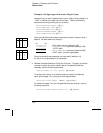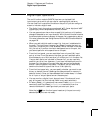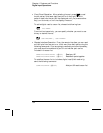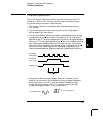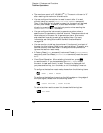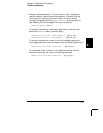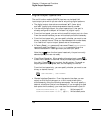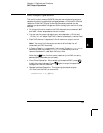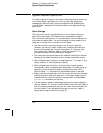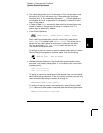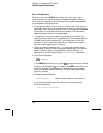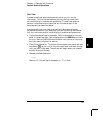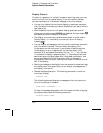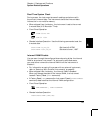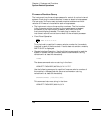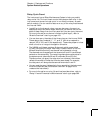
System-Related Operations
This section gives information on system-related topics such as storing
instrument states, reading errors, running a self-test, displaying
messages on the front panel, setting the system clock, disabling the
internal
DMM, reading the firmware revisions, and reading the relay
cycle count.
State Storage
The instrument has six storage locations in non-volatile memory to
store instrument states. The locations are numbered 0 through 5.
The instrument uses location “0” to automatically hold the state of the
instrument at power down. You can also assign a name to each of the
locations (1 through 5) for use from the front panel.
• You can store the instrument state in any of the six locations.
However, you can only recall a state from a location that contains
a previously stored state. You can use location “0” to store a sixth
instrument state. However, keep in mind that location “0” is
automatically overwritten when power is cycled.
• The instrument stores the state of all modules including all channel
configurations, scanning setups, alarm values, and scaling values.
• When shipped from the factory, storage locations “1” through “5” are
empty (location “0” has the power-on state).
• When shipped from the factory, the instrument is configured to
automatically recall the power-down state (state “0”) when power is
restored. You can change the factory configuration such that a
Factory Reset (*RST command) is issued when power is restored.
• Before recalling a stored state, the instrument verifies that the same
module types are installed in each slot. If a different module type is
installed, the instrument will perform the equivalent of a Card Reset
(SYSTem:CPON command) on that slot.
• You can assign a name to the storage locations (you cannot assign a
name to location “0”). You can name a location from the front panel or
over the remote interface but you can only recall a named state from
the front panel. From the remote interface, you can only recall a
stored state using a number (0 through 5).
Chapter 4 Features and Functions
System-Related Operations
140



